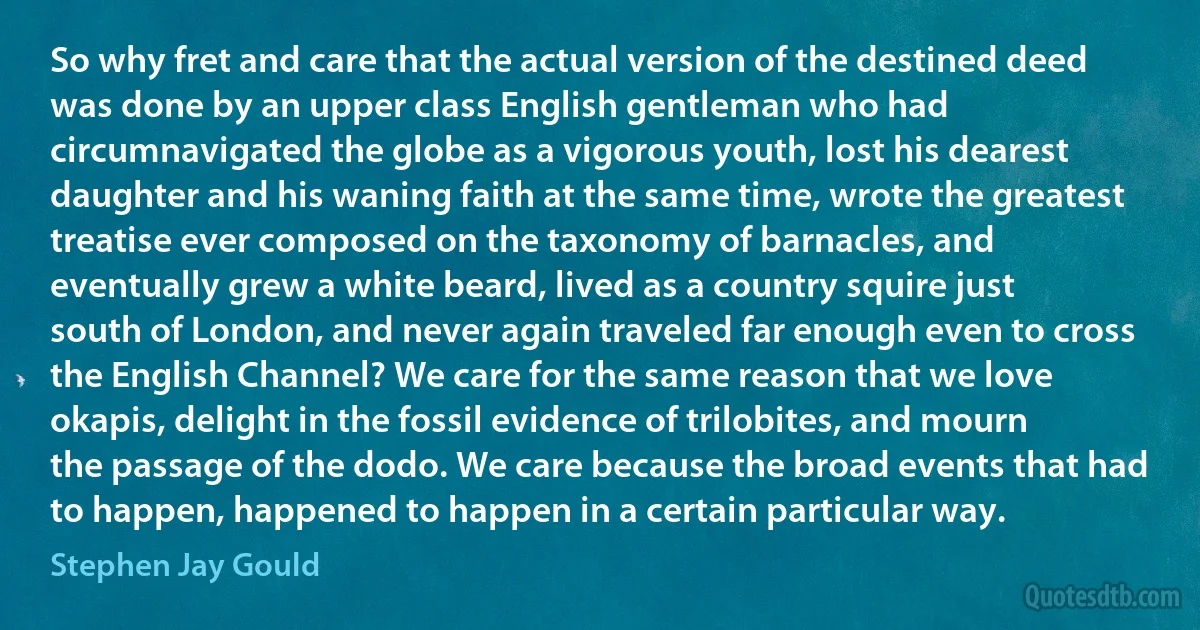Treatise Quotes - page 3
A treatise called Astadhyayi (or Astaka) is Panini's major work. It consists of eight chapters, each subdivided into quarter chapters. In this work Panini distinguishes between the language of sacred texts and the usual language of communication. Panini gives formal production rules and definitions to describe Sanskrit grammar. Starting with about 1700 basic elements like nouns, verbs, vowels, consonants he put them into classes. The construction of sentences, compound nouns etc., is explained as ordered rules operating on underlying structures in a manner similar to modern theory. In many ways Panini's constructions are similar to the way that a mathematical function is defined today.

Pāṇini
Ashtadhyayi Sanskrit treatise on grammar was written in the 6th to 5th century BCE by the Indian grammarian Panini. This work set the linguistic standards for Classical Sanskrit. It sums up in 4,000 sutras the science of phonetics and grammar that had evolved in the Vedic religion. Panini divided his work into eight chapters, each of which is further divided into quarter chapters, beyond defining the morphology and syntax of Sanskrit language.

Pāṇini
Man is not, as the croaking philosophers say, merely a rational animal, capable of understanding and knowledge; for, according to them, even irrational creatures appear possessed of understanding and knowledge. But man alone is the image and likeness of God ; and I mean by man, not one who performs actions similar to those of animals, but one who has advanced far beyond mere humanity - to God Himself. This question we have discussed more minutely in the treatise concerning animals. But the principal point to be spoken of now is, what is intended by the image and likeness of God.

Tatian
When the climbers in 1953 planted their flags on the highest mountain, they set them in snow over the skeletons of creatures that had lived in the warm clear ocean that India, moving north, blanked out. Possibly as much as twenty thousand feet below the seafloor, the skeletal remains had turned into rock. This one fact is a treatise in itself on the movements of the surface of the earth. If by some fiat I had to restrict all this writing to one sentence, this is the one I would choose: The summit of Mt. Everest is marine limestone.

John McPhee
When Keynes's General Theory was published in February 1936, it obliterated all else on the scene in academic economics. Hayek was known to be working on a treatise on capital as Keynes's work was published (the work that became The Pure Theory of Capital). While there was some anticipation in academia for this forthcoming major work, interest even by economists in Hayek's work waned.

Alan O. Ebenstein
[In the introduction to his Middle Commentary on Aristotle's Topics, Averroes said] This art has three parts. The first part sets forth the speeches from which dialectical conversation is composed - i. e., its parts, and the parts of its parts on to its simplest components. This part is found in the first treatise on Aristotle's book.
The second part sets forth the topics from which syllogisms are drawn - syllogisms for affirming something or denying it with respect to every kind of problem occurring in this art. This is the next six treatises of Aristotle's book
The third part set forth how The third part sets forth how the questioner ought to question and the answerer answer. It also sets forth how many kinds of questions and answers there are. This is in the eighth treatise of Aristotle's book.

Averroes
Praise be to God with all due praise, and a prayer for Muhammad His chosen servant and apostle. The purpose of this treatise is to examine, from the standpoint of the study of the Law, whether the study of philosophy and logic is allowed by the Law, or prohibited, or commanded either by way of recommendation or as obligatory.

Averroes
The anonymous author of 'The Vestiges of Creation' published in 1844 a treatise, written in a clear and attractive style, which made the English public familiar with the leading views of Lamarck on transmutation and progression but brought no new facts or original line of argument to support those views, or to combat the principal objections which the scientific world entertained against them. No decided step in this direction was made until the publication in 1858 of two papers, one by Mr. Darwin and another by Mr. Wallace.

Charles Lyell
A treatise on mental dietetics would be imperfect without some special notice of that most irrational and melancholy of all human torments, hypochondriasis. Reason, morality, wit, and even religion, have endeavoured by every possible means to exorcise this demon. By pamphlets and by books-in tragedy and in comedy - from the pulpit and on the stage, it has been denounced and ridiculed.

Ernst, Baron von Feuchtersleben
In Science the paramount appeal is to the Intellect - its purpose being instruction; in Art, the paramount appeal is to the Emotions - its purpose being pleasure. A work of Art must of course indirectly appeal to the Intellect, and a work of Science will also indirectly appeal to the Feelings; nevertheless a poem on the stars and a treatise on astronomy have distinct aims and distinct methods. But having recognised the broadly-marked differences, we are called upon to ascertain the underlying resemblances. Logic and Imagination belong equally to both. It is only because men have been attracted by the differences that they have overlooked the not less important affinities.

George Henry Lewes
W.E.B. Du Bois called such erasure [of the first arrival of enslaved Africans to America] the propaganda of history. "It is propaganda like this that has led men in the past to insist that history is 'lies agreed upon'; and to point out the danger in such misinformation," he wrote in his influential treatise Black Reconstruction (1935). Du Bois argued that America had falsified the fact of its history "because the nation was ashamed.”.

W. E. B. Du Bois
The tables of criminality for different ages, given in my published treatise, merit at least as much faith as the tables of mortality, and verify themselves within perhaps even narrower limits; so that crime pursues its path with even more constancy than death. ...it is still betwixt the ages of twenty-one and twenty-five, that, all things being equal, the greatest number of persons are to be found in that position [of a criminal].

Adolphe Quetelet



